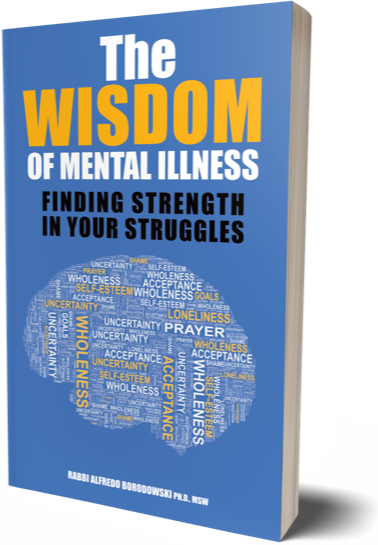Marriage is a journey filled with love, laughter, and shared dreams. But when mental illness enters the picture, it can feel like navigating a stormy sea. You may find yourselves in survival mode—just trying to make it through each day. But here’s the empowering truth: it’s possible to move from surviving to thriving. Mental illness doesn’t have to define your marriage. With the right tools, mindset, and support, it can become an opportunity for growth, deeper connection, and resilience.
Let’s dive into how you can not only survive but thrive in your marriage when mental illness is part of the journey.
1. Shifting from Survival Mode to a Thriving Mindset
When mental illness takes over, it’s easy to slip into survival mode. You might be focused on just getting through the day—managing symptoms, juggling responsibilities, and trying to keep things from falling apart. But staying in survival mode long-term can be exhausting, and it prevents you from fully enjoying your relationship and life together.
The key to moving from surviving to thriving is mindset. Thriving doesn’t mean that mental illness magically disappears; it means that you and your partner learn to navigate it in a way that strengthens your bond instead of breaking it down. It’s about shifting your perspective from “How do we get through this?” to “How can we grow through this?”
What to do:
Take a step back and redefine what thriving means for you as a couple. Maybe it’s about finding joy in the little moments, supporting each other’s self-care routines, or setting small, achievable goals together. Embrace the idea that thriving is a journey, not a destination, and celebrate each step forward.
2. Fostering Emotional Connection Amidst Mental Health Struggles
Mental illness can create emotional distance between partners. Depression, anxiety, or other conditions might make it hard for one partner to open up, while the other may feel confused or disconnected. But emotional connection is the bedrock of any thriving relationship, especially when times are tough. It’s okay to admit that you’re struggling. Sharing your feelings, even if they’re difficult or uncomfortable, can help your partner understand what you’re going through and strengthen your connection. Vulnerability is a bridge, not a burden.
Approach with empathy and curiosity, not judgment. Ask how you can help without assuming you have all the answers. Sometimes, just being a compassionate listener can make all the difference.
What to do:
Schedule regular check-ins to talk about how you’re feeling emotionally—without distractions. These conversations can help you both stay connected and ensure that you’re addressing any feelings of isolation or misunderstanding before they grow.
3. Building Resilience as a Team
Resilience isn’t just about bouncing back from difficulties—it’s about growing stronger because of them. When mental illness is part of your marriage, resilience becomes essential. It’s not about pretending everything is okay or sweeping problems under the rug. It’s about facing the challenges head-on, together, and coming out on the other side more connected and empowered.
What to do:
Focus on building resilience as a team. Support each other’s mental health journeys, practice self-care together, and develop healthy coping mechanisms. This could look like going for daily walks, practicing mindfulness, or creating a shared gratitude journal to remind each other of the positives, even on tough days.
When you work on resilience as a couple, you’re not just surviving—you’re creating a foundation that can weather any storm.
4. Creating Space for Joy, Even During Hard Times
It’s easy to let mental illness steal the joy from your marriage, but that doesn’t have to be the case. While the journey through mental health struggles is undoubtedly hard, there’s still room for laughter, connection, and fun. In fact, creating space for joy can be one of the most powerful ways to thrive.
What to do:
Make it a priority to infuse your relationship with lighthearted moments, no matter how small. Watch a comedy together, reminisce about funny memories, or find ways to surprise each other with small gestures of love. These moments of joy don’t ignore the reality of mental illness—they remind you that your relationship is more than just the struggles you face.
5. Seeking Professional Support and Embracing Healing
One of the biggest shifts from surviving to thriving happens when you acknowledge that you don’t have to do it all on your own. Mental illness is complex, and navigating it in a marriage can be overwhelming. Seeking professional support—whether individual therapy, couples counseling, or even support groups—can provide the guidance and tools you need to truly thrive. Therapy can be an essential part of managing your symptoms, building healthy coping strategies, and gaining insight into your emotional world. Don’t hesitate to seek help—it’s one of the bravest things you can do for yourself and your marriage.
It’s important to take care of your own mental health, too. Consider seeking therapy or support to process your emotions and ensure that you’re not carrying the entire weight of your partner’s struggles on your shoulders.
What to do:
Embrace the healing journey together. Celebrate the small wins—whether it’s a successful therapy session, a day where symptoms feel manageable, or a moment of connection between you and your partner. Healing takes time, but every step forward is a step toward thriving.
Final Thoughts: Embracing Growth in Your Marriage
Moving from surviving to thriving in a marriage impacted by mental illness isn’t about perfection or quick fixes. It’s about committing to growth, resilience, and love—every single day. Mental illness may create challenges, but it can also be a catalyst for deeper connection, empathy, and strength in your relationship.
Thriving doesn’t mean that the mental illness goes away; it means that your love and partnership evolve to meet the challenges head-on. By focusing on emotional connection, building resilience, embracing joy, and seeking support when needed, you and your partner can create a marriage that not only survives but thrives—stronger and more united than ever.
FAQs
1. How can partners address the stigma associated with mental illness within their marriage?
Stigma can hinder open communication about mental health issues. Partners should actively educate themselves about mental illness and discuss their feelings openly to combat stigma and foster a supportive environment.
2. What role does financial stress play in marriages affected by mental illness?
Financial stress can exacerbate mental health issues and strain relationships. Couples should work together on financial planning and seek professional advice if needed to manage financial pressures and reduce their impact on the relationship.
3. How can couples manage the impact of mental illness on intimacy and physical connection?
Mental illness can affect intimacy. Couples should communicate openly about their needs and explore alternative ways to connect physically and emotionally, including seeking therapy or counseling if needed.












